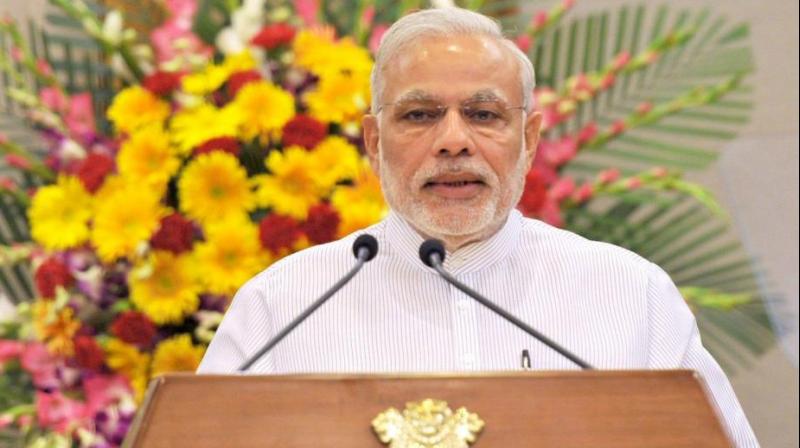Joint polls bid to dump parliamentary system?

BJP-led governments and the idea of making key changes to the Constitution, in one guise or another, seem to go together. Prime Minister Narendra Modi's push for holding elections to the Lok Sabha and all the state Assemblies simultaneously — an idea which will be studied by a government-appointed panel, it was announced on Wednesday — calls to mind the panel to review the working of the Constitution created in February 2000 by the Atal Behari Vajpayee government. The Venkatachaliah Commission did not end up doing damage, as the chairman was guided by prudence. Even so, there was a so-called “stability” group within the 11-member commission, mainly politicians, which aimed to create a fixed five-year term for legislatures and to debar Sonia Gandhi from holding high constitutional office.
These calculations came to nought. Why the Vajpayee government was so keen to review the Constitution wasn’t quite clear. But then RSS joint general secretary K.S. Sudarshan let the cat out in views expressed in Organiser, the RSS mouthpiece. He said it was necessary to examine whether the Westminster model was beneficial to India, and if another system should be considered. This raised hackles. The RSS leader's view seemed to suggest that the BJP's preference was for the presidential form of government, which can give the chief executive sweeping powers. President K.R. Narayanan had stepped in to quietly caution the government that the basic structure of the Constitution must not be tampered with and the parliamentary form of government (Westminster model) should not be violated.
This did not endear Mr Narayanan to the government, but the effort to make fundamental changes was stymied. The Modi government has once again revived the talk of fixing the term of legislaturess — under the slogan of “One Nation, One Election”. This is another name for scuttling the parliamentary form of government.
The government's arguments are not persuasive. It speaks of stability being denied to the state system with state or parliamentary elections at different times distracting focus from development work. It also speaks of duplicating expenses. Undercutting the government's stability plank is the fact that the coalition era of the past quarter-century - when governments frequently fell and many elections were held - saw a noticeable acceleration of the growth rate. Also, the Modi government also hasn't lived up to its profession. It could have but did not hold the Assembly election in J&K along with the recent Lok Sabha polls when state parties had demanded this.
Under the parliamentary system, due to political circumstances, a no-confidence motion can be brought against a government. A government can also go to the country before the end of its five years, as indeed Mr Vajpayee himself had done. In a very diverse country, this is to be expected, given fluctuations in the political temperature. Fixing a government's term denies the public any chance of changing it.

